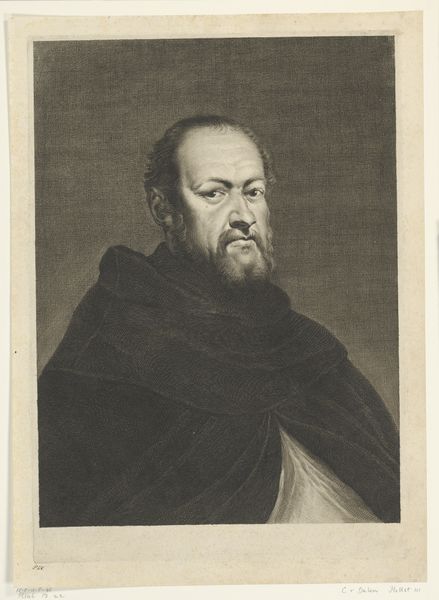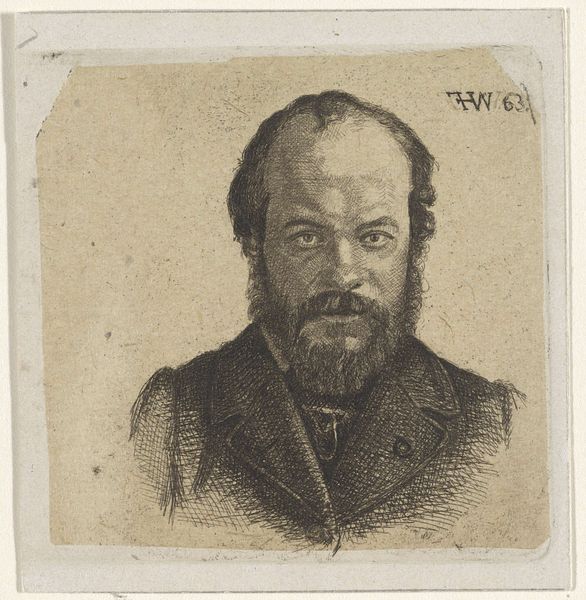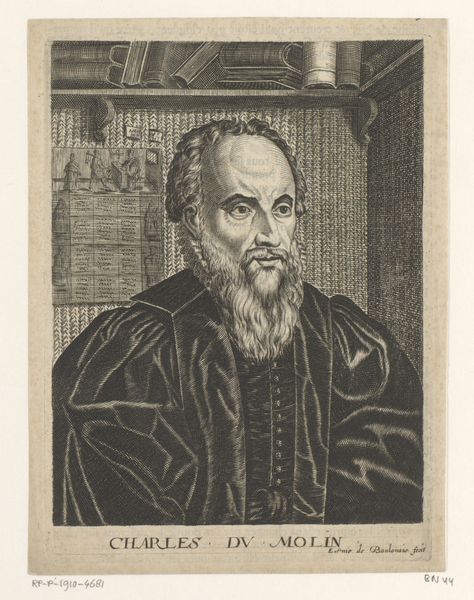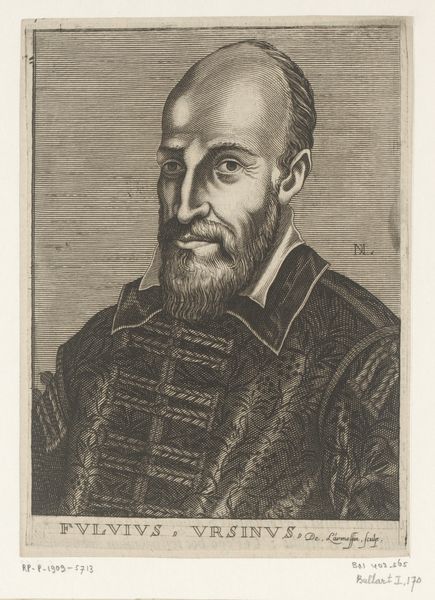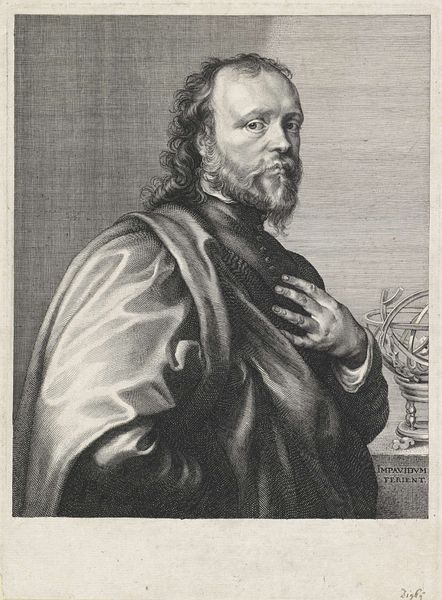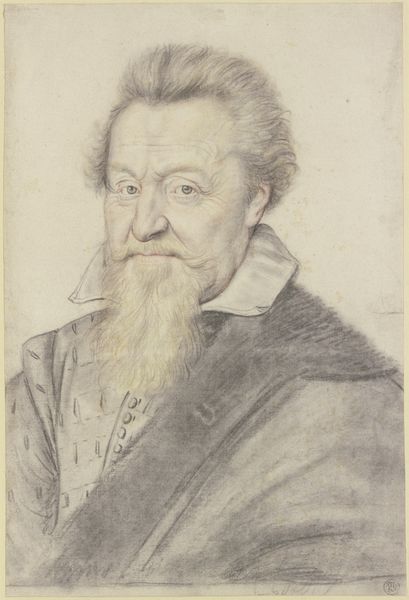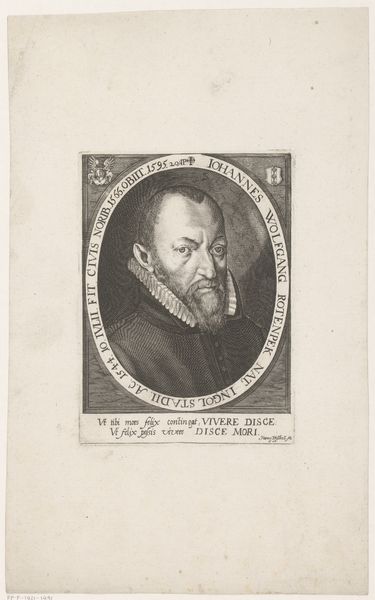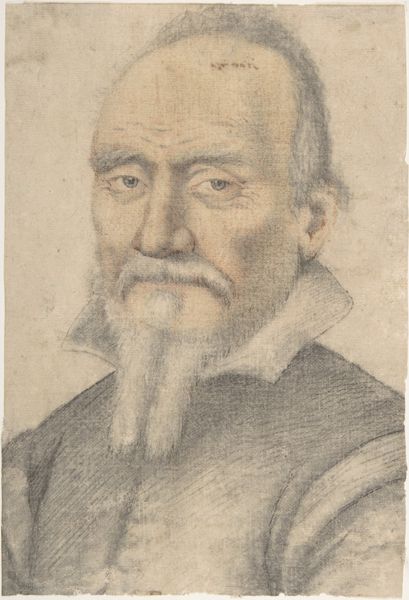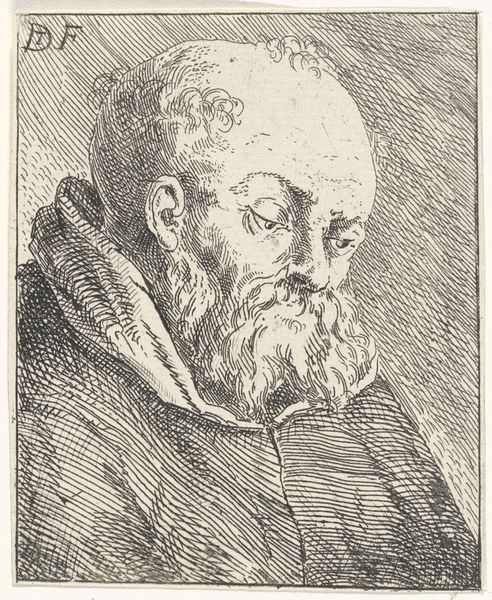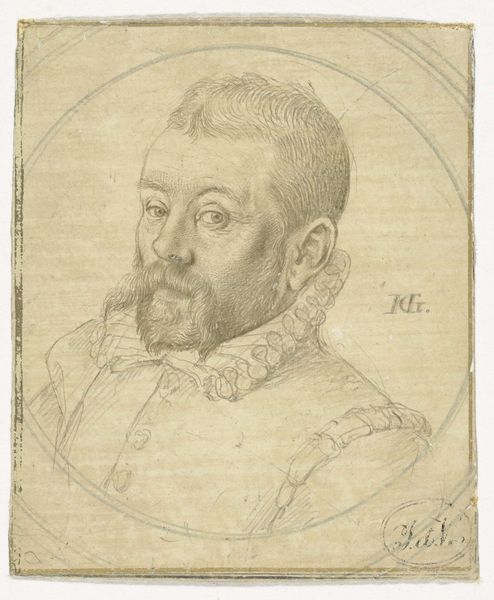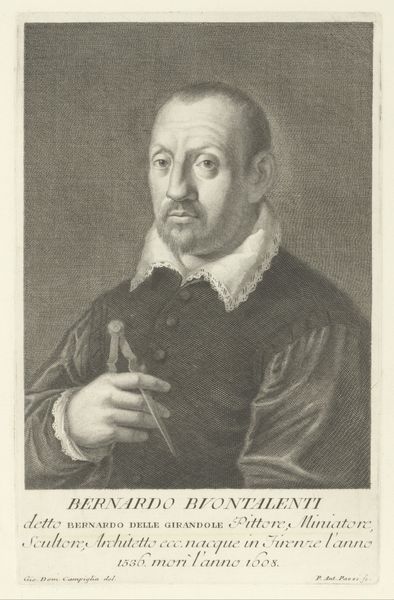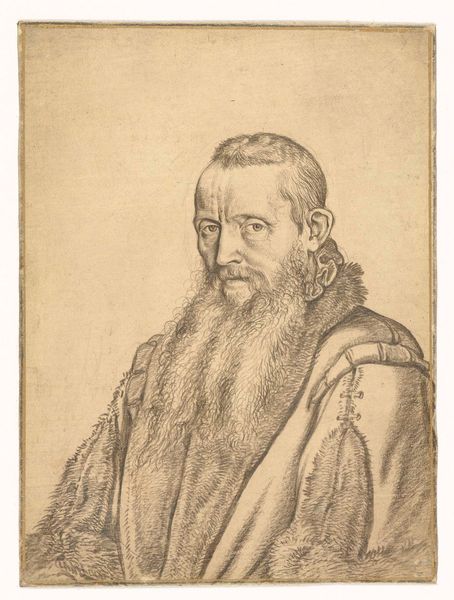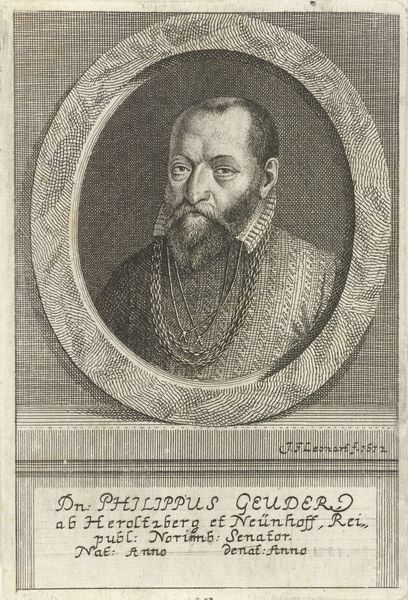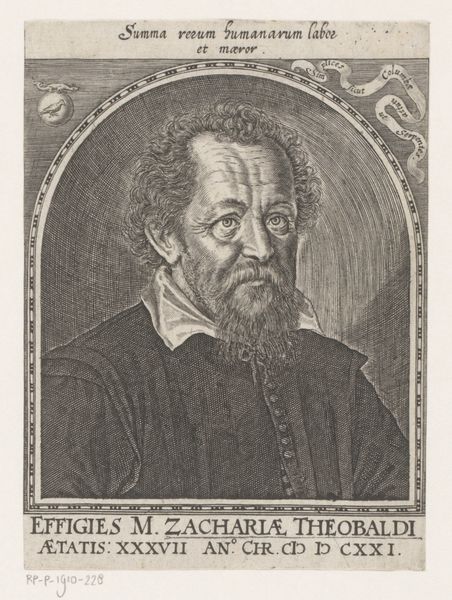
drawing, pen, engraving
#
portrait
#
drawing
#
neoclacissism
#
facial expression drawing
#
low key portrait
#
portrait reference
#
pencil drawing
#
portrait head and shoulder
#
line
#
animal drawing portrait
#
pen
#
portrait drawing
#
facial portrait
#
engraving
#
portrait art
#
fine art portrait
#
realism
Dimensions: height 168 mm, width 127 mm
Copyright: Rijks Museum: Open Domain
Editor: This is "Portret van een onbekende man," or Portrait of an Unknown Man, created around 1790 by Johannes Fredericus Lange. It’s an engraving, and I find the subject's gaze quite intense. It’s such a direct stare; what do you make of this work? Curator: The direct gaze is compelling, isn’t it? I see this work as a window into the social hierarchies of the late 18th century. Consider the sitter's implied status – the neatly trimmed beard, the dark, formal attire suggested by the lines. This portrait, in its meticulous detail, seems to assert a certain level of control and authority. What do you think the 'unknown' status implies in this context? Editor: Perhaps it highlights a focus on generic masculine authority rather than individual identity? Almost like a stand-in for a certain class of man? Curator: Precisely! This ambiguity is powerful. Lange's work might subtly critique the era’s rigid social structures, particularly the limitations placed on those excluded from such representations of power. Are we really seeing an individual, or are we seeing a representation *of* power itself? Editor: That's fascinating. I hadn't considered it as a commentary on social power, but more as a… well, just a face. I see how it can be much more than that. Curator: These portraits, even those of 'unknown' men, allow us to explore the ways identity and power were constructed and represented in the Neoclassical era. Art is rarely just about the aesthetic; it is always embedded in a network of social and historical meanings. What new questions does this raise for you? Editor: I guess I am now wondering about the absence of portraits of people who *weren't* part of that elite power structure and the stories they could have told. Curator: Exactly! It encourages us to critically examine what narratives are privileged and whose voices remain unheard.
Comments
No comments
Be the first to comment and join the conversation on the ultimate creative platform.
